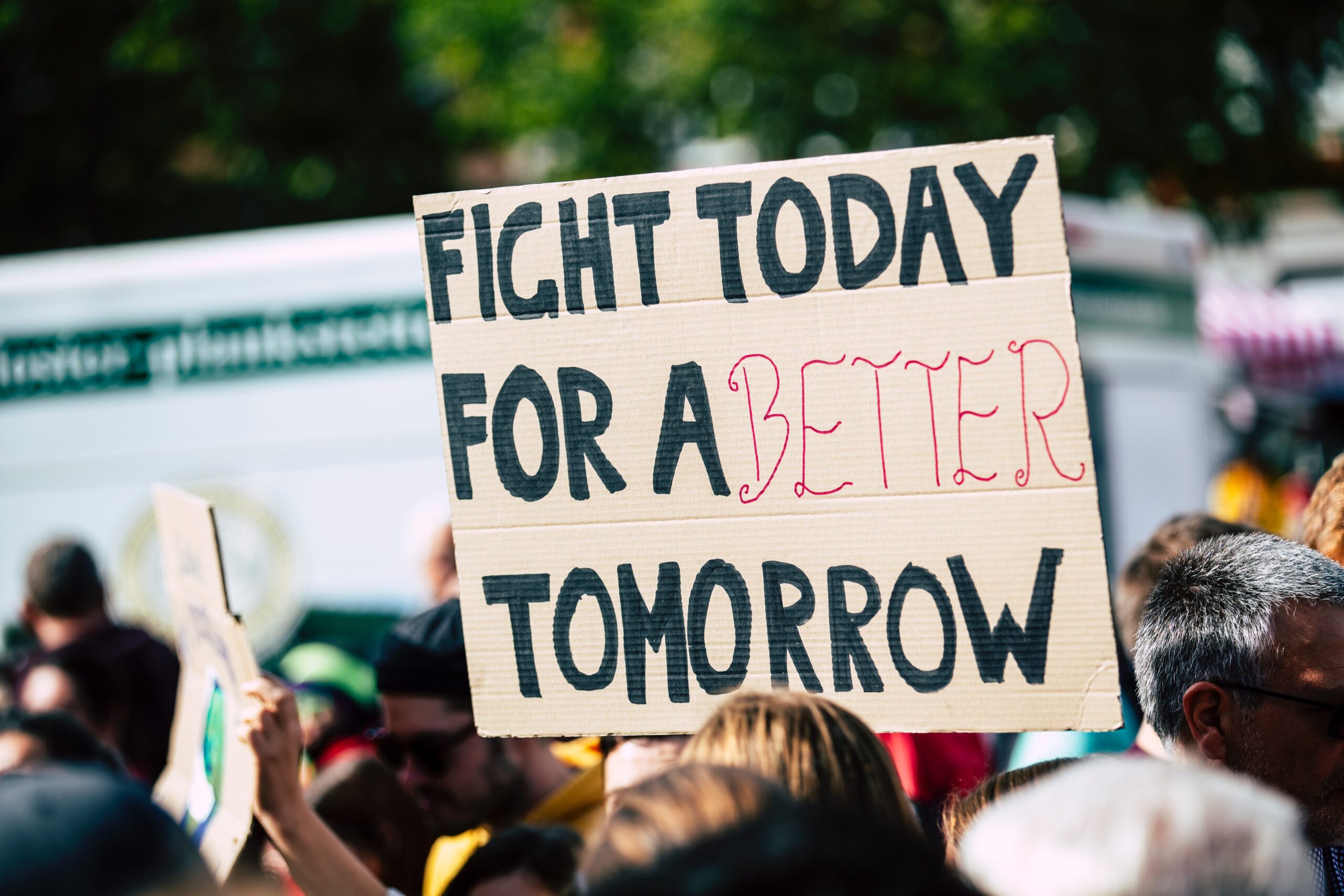To avoid the worst outcomes of climate change, we have to limit global warming to 1.5°C or 2°C maximum. After failing to act for multiple decades, this is a significant challenge but theoretically not yet impossible. To do so, we need to reduce carbon emissions as fast as possible, achieving zero emissions globally by 2050 and then continue the reduction of atmospheric carbon through natural and technological solutions combined. The main sources of Greenhouse Gases are energy production (for industry and citizens), transportation and agriculture. Generally speaking, the most important step in curbing climate change is the elimination of fossil fuels. This requires sustained investment in clean energy, changing infrastructure and the implementation of many new policies. We are not doing enough in any dimension of this challenge.
Fighting for Climate with the Power of Law
In the last two decades, law became an increasingly important tool in climate activism. Activists are citing the largest emitters and governments into the courtroom to force them to act responsibly in order to protect the rights of all humans, including future generations. The “rights of future generations” are an increasingly important legal concept as they represent the long term future of humanity, a large number of people across the globe who will be significantly affected by our current decisions but who cannot act to protect themselves. They are recognized in the constitutions of multiple countries.
Permanent Representation for Future Generations
With funding from the European Climate Foundation, JESC is developing a potential campaign for the establishment of a permanent Representation of Future Generations (FGR) in the EU institutional framework.
FGR would be an institution with soft and hard legal powers to influence the discourse and decision making process in Brussels in favor of the future generations – primarily aiming at climate policies. There are multiple possible blueprints for such an institution. This institution will be built on the lessons learned from climate lawsuits across the globe and its task will be to enhance the efficiency of climate-related law-enforcement across the EU.
The responsibility of FGR is to find and expose systematic (climate-related) shortcomings of policies in the body of European law. FGR is taking a long-term and holistic view in policy debates, and represents a perspective that focuses on the interests of our grandchildren. It is fighting for policies that preserve the natural resources that are necessary for a decent life in any cultural context.
The project
In 2023 we are doing an extensive consultation with experts and potential partners, exploring the legal avenues that would lead us to this goal and envisioning the communications campaign that is necessary to lobby successfully.
We will organize 4 in person meetings and many consultations and will deliver a feasibility study and likely a project plan for the implementation of this plan.
Meeting 1: Establishment and institutional frames 1
The goal is to gather all ideas for the establishment and operation of FGR. We will produce an advanced discussion paper that will be circulated and discussed before being finalized.
Meeting 2: Establishment and institutional frames 2
The goal of this meeting is to capitalize on the ongoing consultations on the first discussion paper on FGR. We will establish a more detailed legal pathway to the establishment of the new institution and the legal acts necessary.
Meeting 3: Campaign and grassroots mobilization
After the identification of the legal process and the key messages (what is the FGR after all and what is necessary to make this happen) a campaign will be planned envisioning a large coalition of partners who have experience in lobbying in Brussels and reaching grassroots partners across the member states. The campaigns might use tools such as launching an European Citizens Initiative, connect the project agenda to the rotating presidency of the European Council or engage with the European Parliamentary election campaign in 2024.
Meeting 4: Project development
After the completion of all milestones, the core project team will spend considerable time reviewing all the information gathered and lessons learned during the preparatory phase. A decision will be made on launching the campaign.
If the decision is positive, a project proposal will be developed and submitted to the European Climate Foundation either by JESC or by a consortium led by JESC. The campaign is likely to be launched in early 2024.
Get involved!
If you believe that this project is worth the effort and you would be able and willing to contribute, we are happy to hear from you. We need much expertise and capacity in
- EU policy processes,
- grassroots and international campaigns and communication
- mobilizing networks for political action
- environmental law
- climate policy in general
– as the project evolves, we will be more specific.
If you are interested in participating or just wish to receive updates about the process, please fill in this form and we will contact you in the right time: https://forms.gle/3VDN7TknFWBXy1iL8
Contact
The project development and implementation is led by Béla Kuslits, ecology officer at JESC. Questions, suggestions and contributions to the project are welcome at bela.kuslits@jesc.eu.



